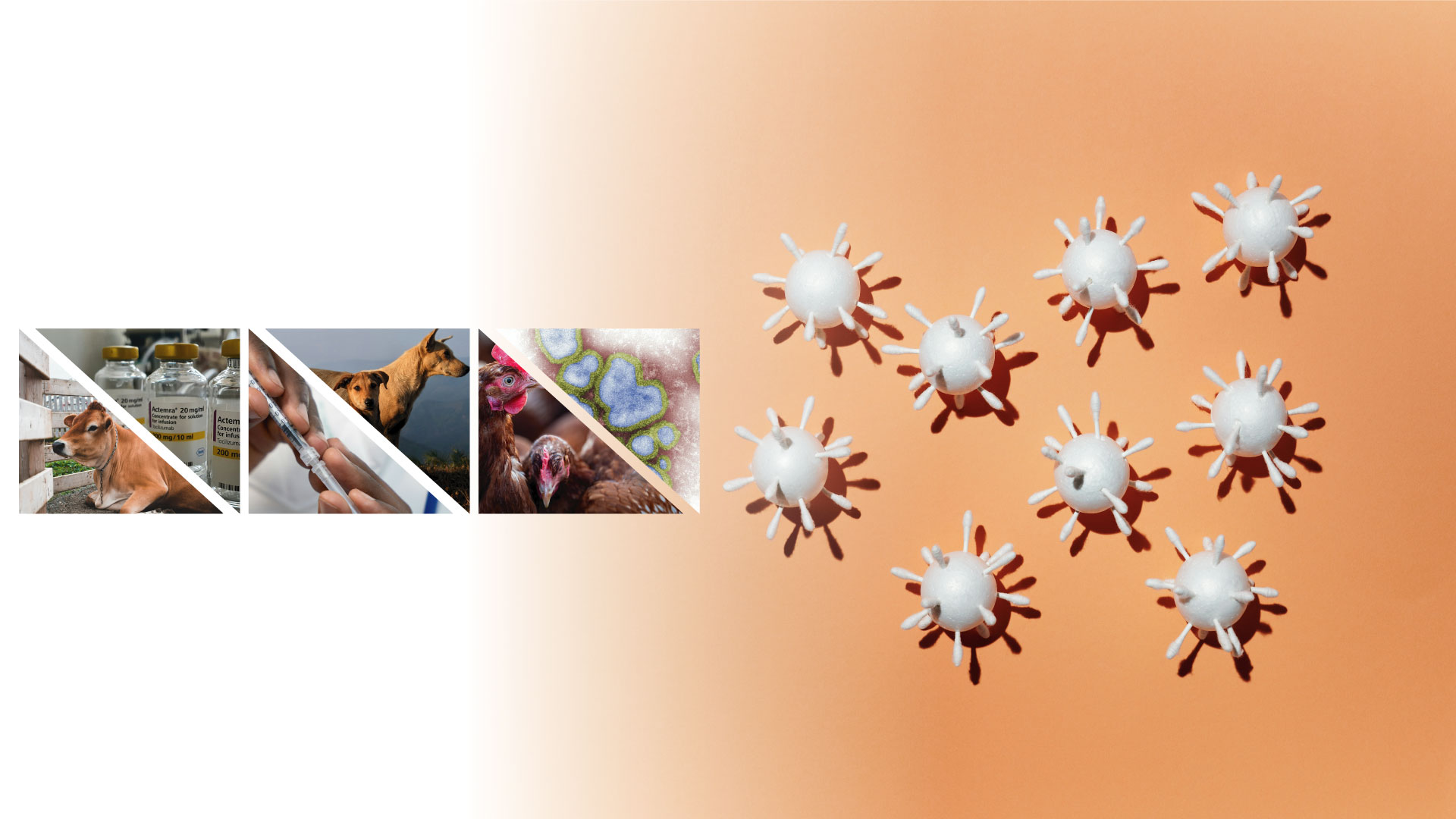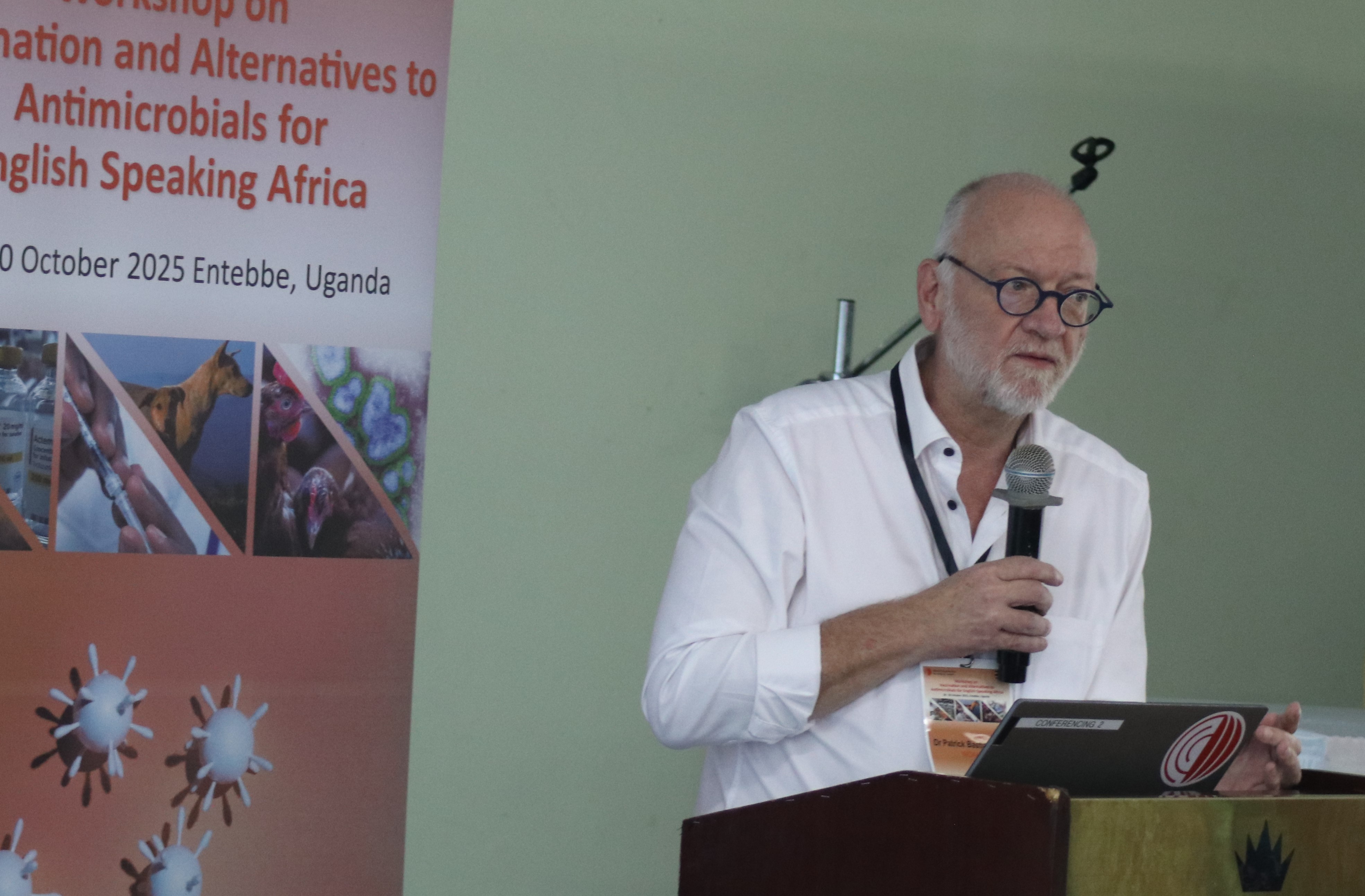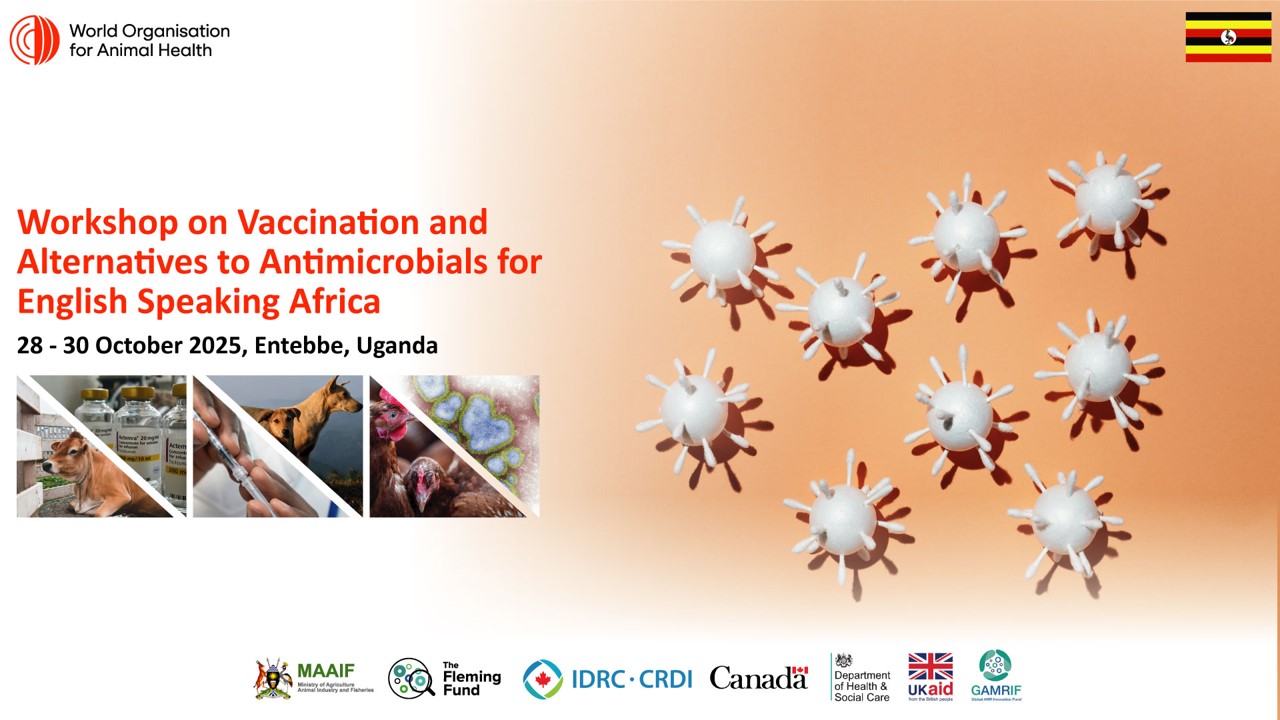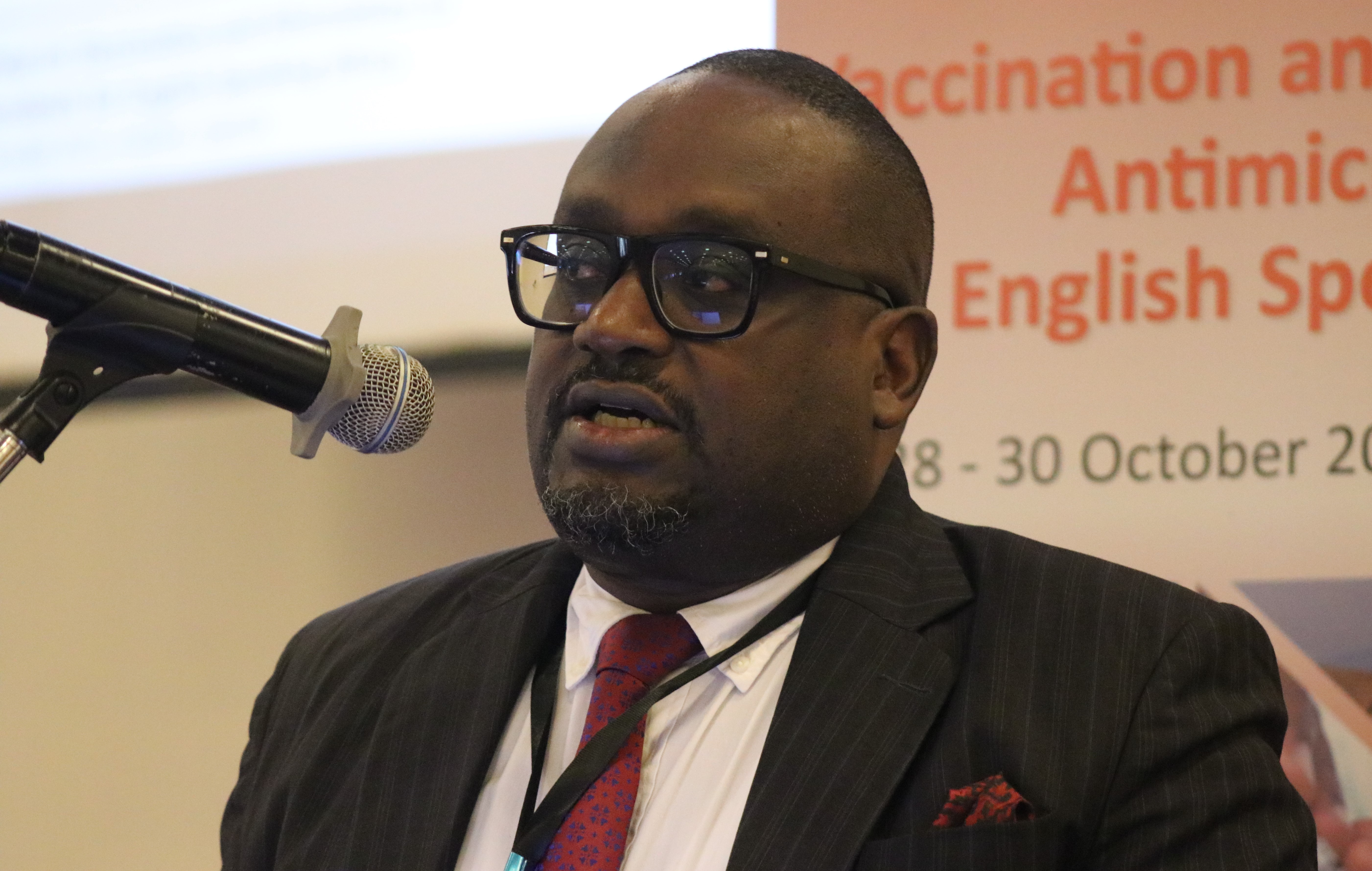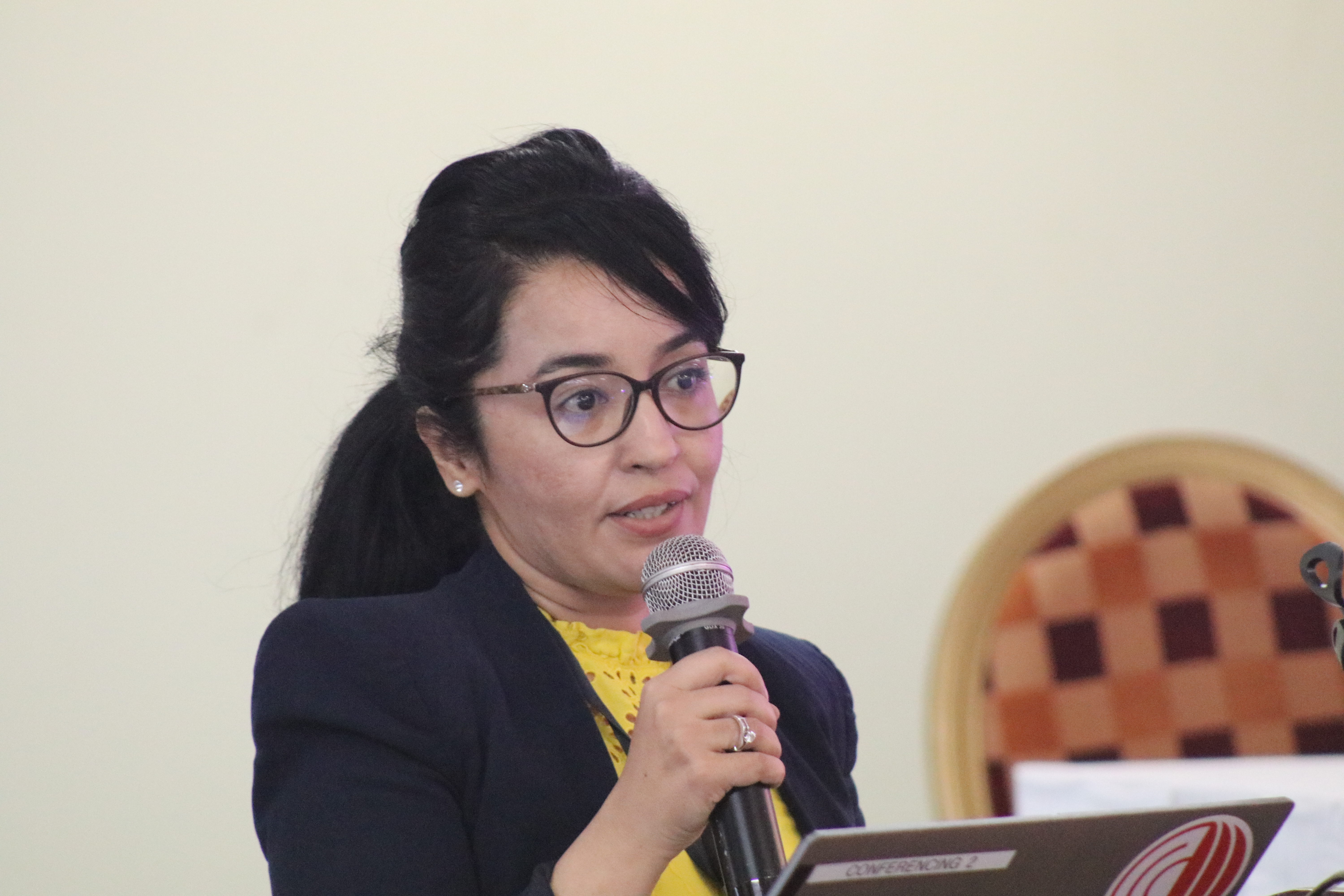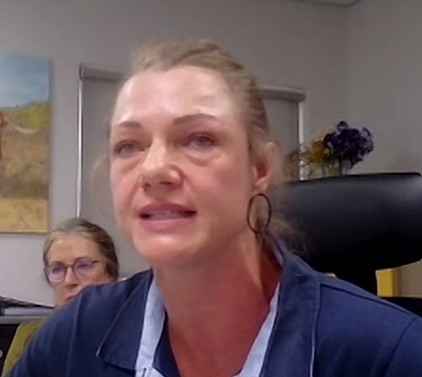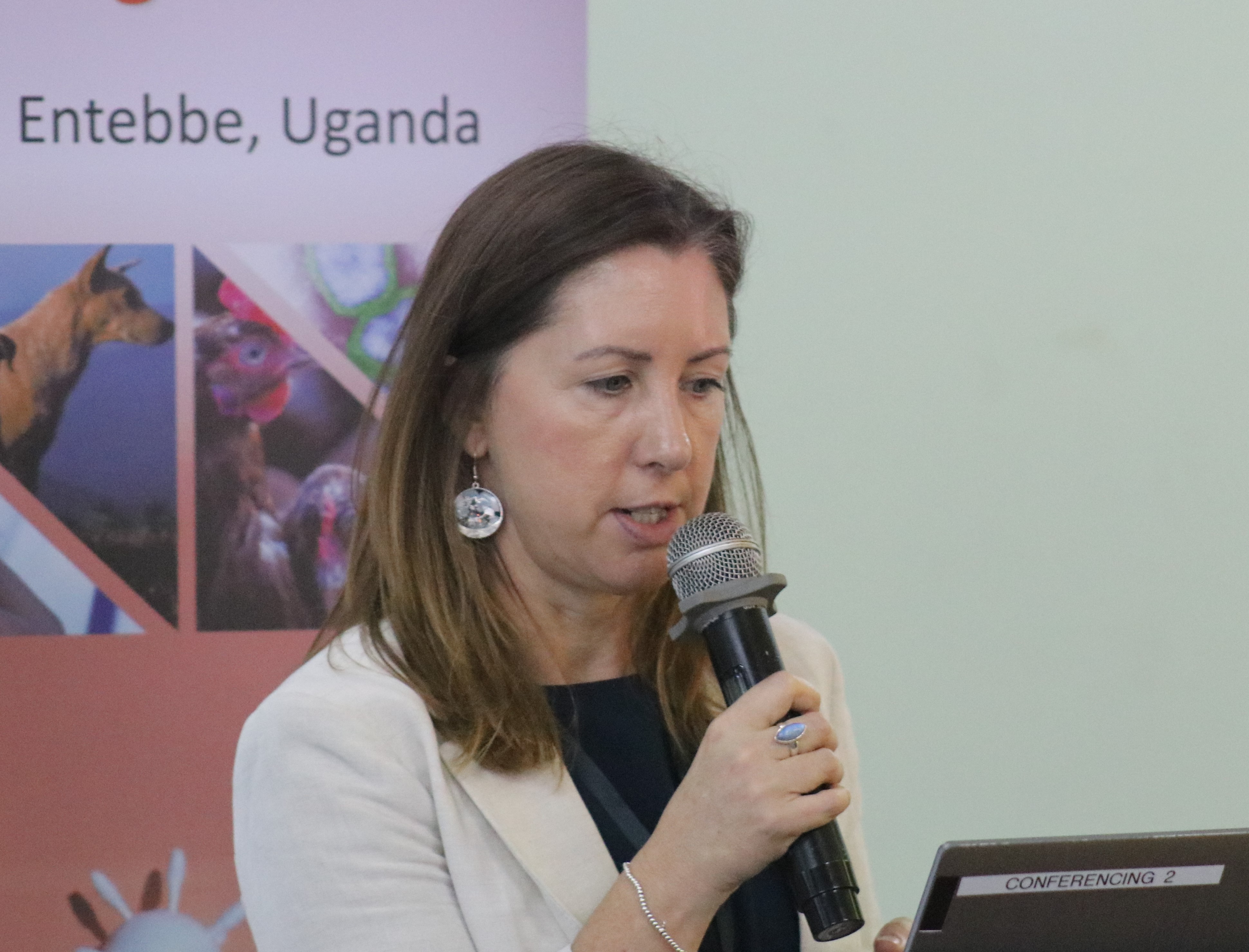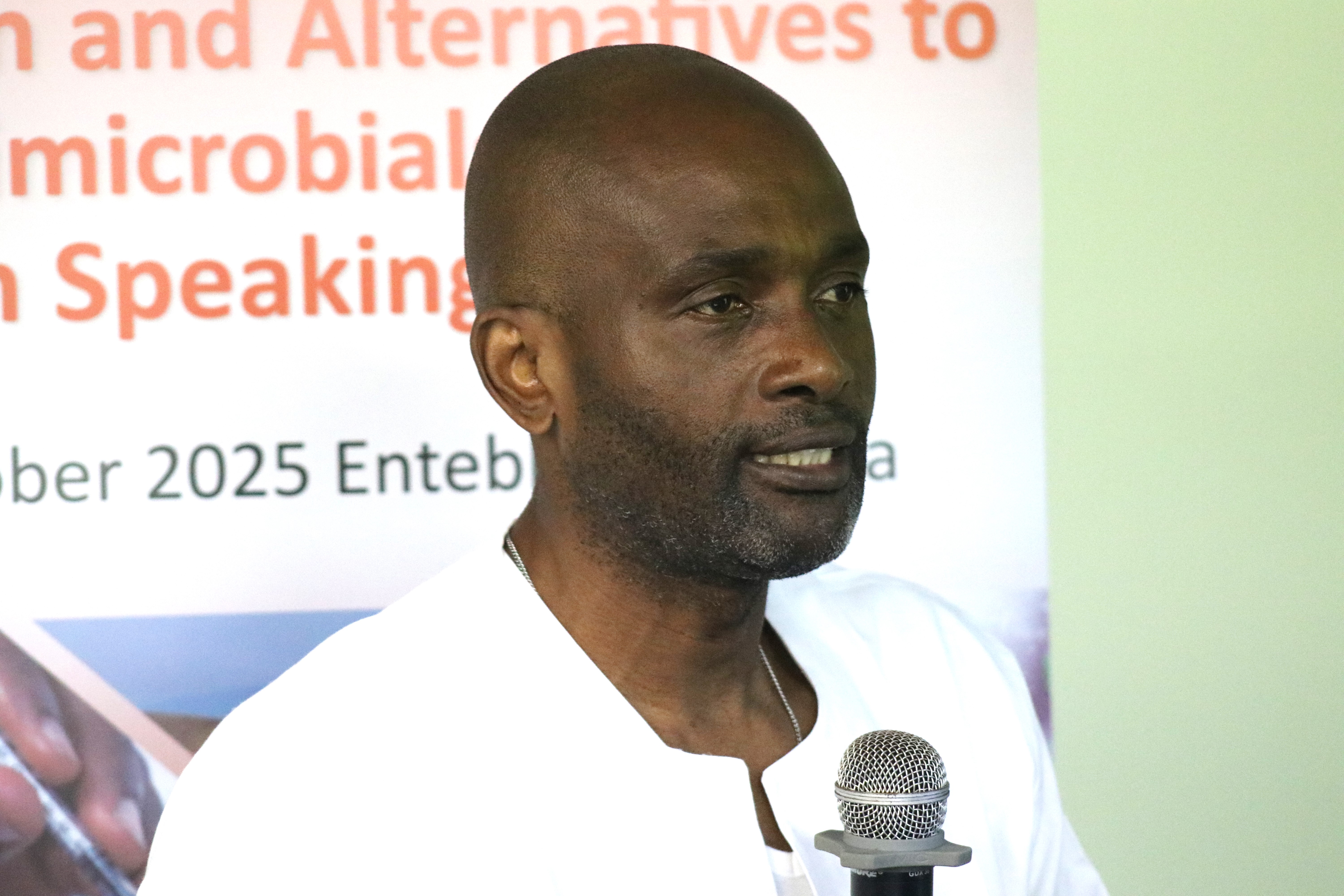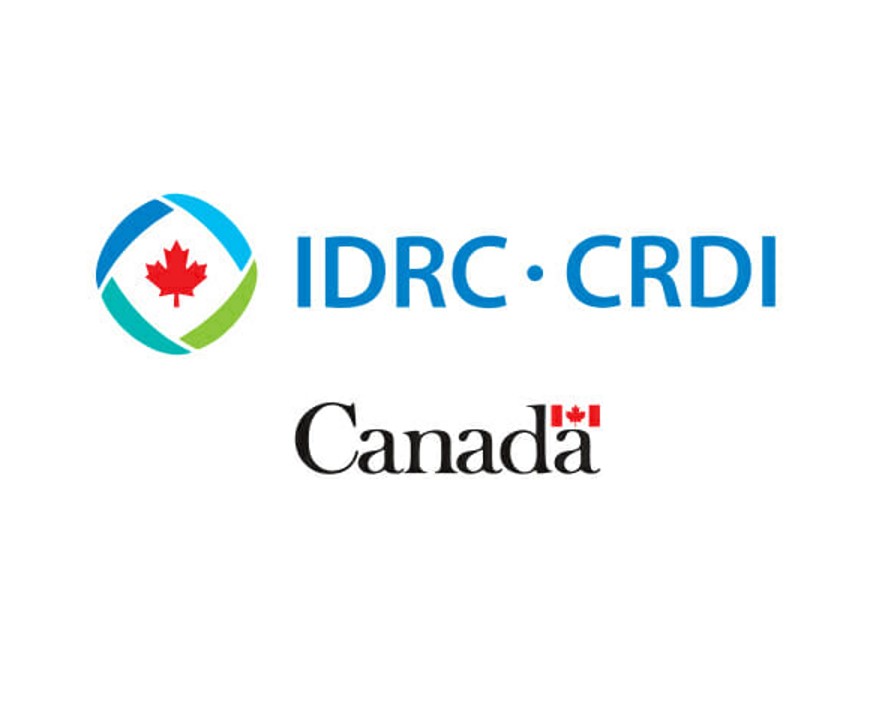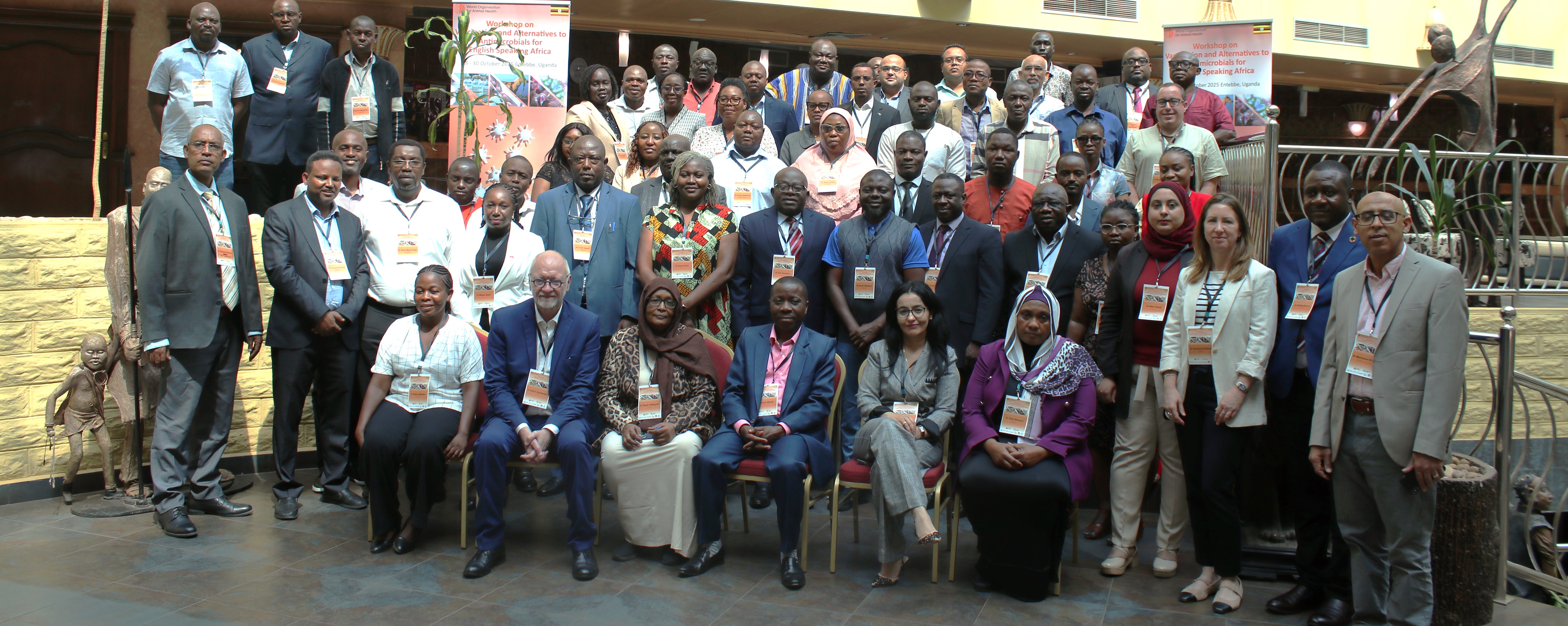
Dr. Patrick Bastiaensen of the WOAH Sub-Regional Representation in Nairobi, Kenya, delivering the closing remarks. Picture (c) D. Tegegne (woah) 2025.
Antimicrobial resistance (AMR) poses a significant global threat to public health, food security and sustainable animal production. The misuse of antimicrobials in the treatment of animal diseases has been one of the main factors driving the emergence and spread of resistant pathogens, rendering antimicrobials ineffective.
Vaccination is one of the most cost-effective interventions we have to prevent animal diseases, protect animal welfare and significantly reduce the use of antimicrobials. It is the best weapon we have against diseases for which vaccines exist!
This is not just the view of WOAH. It is a global commitment, underscored by the recent high-level meeting on AMR, held during the 79th United Nations General Assembly (UNGA), which prioritised prevention and vaccination strategies.
However, we face significant challenges, ranging from limited access to quality vaccines, to the presence of substandard and falsified vaccines, to the underutilisation of these vital tools, particularly in Africa, due to barriers in vaccine development, production, regulation and distribution.
To address these challenges, WOAH, in collaboration with Canada’s International Development Research Centre (IDRC), organised a three-day regional workshop in Entebbe, Uganda, from 28 to 30 October 2025.
The workshop brought together 69 participants (including 22 women, or 32%), who included WOAH focal points for disease notification and veterinary products from 24 English-speaking African countries, representatives from vaccine production laboratories, veterinary drug regulatory authorities, and researchers working on vaccines and alternatives to antimicrobials.
Dr Joseph Nkhoma (Malawi). WOAH Regional Workshop on Vaccination and Alternatives to Antimicrobials (English-speaking Africa) 28 – 30 October 2025 Entebbe, Uganda. Picture (c) P. Bastiaensen (woah) 2025
The workshop aimed to:
The OMSA urges its Members (member countries and territories) to harmonise their national regulations with international standards in order to streamline the marketing authorisations of vaccines and improve access to them. It also stresses the importance of post-vaccination surveillance and the strengthening of the collaboration between governments, industry and research institutions.
To fight AMR in the animal health sector, it is essential to shift from a paradigm focused on treating animal diseases to one focused on preventing them. Vaccination, combined with improved biosecurity and other alternative strategies, is an essential tool for reducing dependence on antimicrobials while protecting animal welfare, health and productivity.
The meeting brought together teams of up to two WOAH national focal points from the following countries:
The West African Health Organisation (WAHO, ECOWAS), the NVRI (Vom), NAFDAC (Abuja), Nigeria and the CVRI (Lusaka) of Zambia participated as observers.
The meeting benefited from the scientific and technical support of several national, regional and international experts and institutions:
and the AMR and Veterinary Products Department of WOAH in Paris.
The meeting was organised with financial support from Canada and the United Kingdom:
WOAH Regional Workshop on Vaccination and Alternatives to Antimicrobials (English-speaking Africa) 28 – 30 October 2025 Entebbe, Uganda
By prioritising vaccination and other non-vaccine alternatives, we will preserve essential antimicrobials for future generations while ensuring the sustainability of animal production systems.
This workshop was a crucial step towards translating global commitments into concrete, collaborative action at regional and national levels, thereby promoting a healthier future for animals and humans.
Driven by our shared determination regarding the need for vaccination and the use of alternatives to antimicrobials, we have developed a joint roadmap to develop, improve and implement vaccination strategies to ensure a healthier and more resilient future for African livestock and the communities that depend on them.
PDF - 2.12MB
PDF - 1.88MB
PDF - 2.08MB
PDF - 3.03MB
PDF - 3.26MB
PDF - 4.11MB
PDF - 778.00KB
PDF - 344.12KB
PDF - 1.98MB
PDF - 1.26MB
PDF - 2.27MB
PDF - 1.39MB
PDF - 484.20KB
PDF - 868.94KB
PDF - 8.68MB
PDF - 1.44MB
PDF - 4.26MB
PDF - 3.91MB
